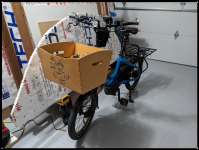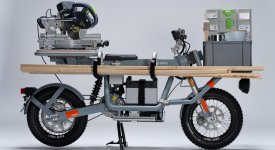Some general notes:
With an e-bike your primary drive is electric, this means you do *not* need to be concerned with rolling resistance or pedaling efficiency anymore
What this means:
- get a full-suspension bike, your backs will thank you for that 10 times over and the motors will take care of the inefficiencies that are the main disadvantage otherwise
- prioritise battery capacity over bike weight when given the choice
- do not go too high end, focus on a high-wuality electric power train more than the "bike" side of the bike
- do not be concerned too much about motor power, a weaker motor with a bigger battery is generally more practical than a stronger one with a smaller battery
If you want an e-bike as a car/transport replacement, you want a rear-wheel motor variety with a suspended seatpost (aftermarket thing) and some other upgrades like a high end fork etc. Main focus is the chain/belt system gets way less loaded so becomes almost maintenance-free and the whole thing is less complicated so more reliable.
If you want a recreational use e-bike, you want the opposite, a full-suspension one with a middle motor and a built-in battery per above. The middle motor provides for a much more nimble bike. I would also stick to 27.5" wheels if you did not drive for long. Easier to control.
ADD:
As for Tern bikes mentioned, these are absolutely bullet-proof but keep in mind their primary design focus is practicality *not* the comfort of the rider. Were I to suggest Tern, it would be their 26" models and that with a big baloon tires at low pressure. Either way, if one was looking at Tern, means they already know what they want to begin ...



